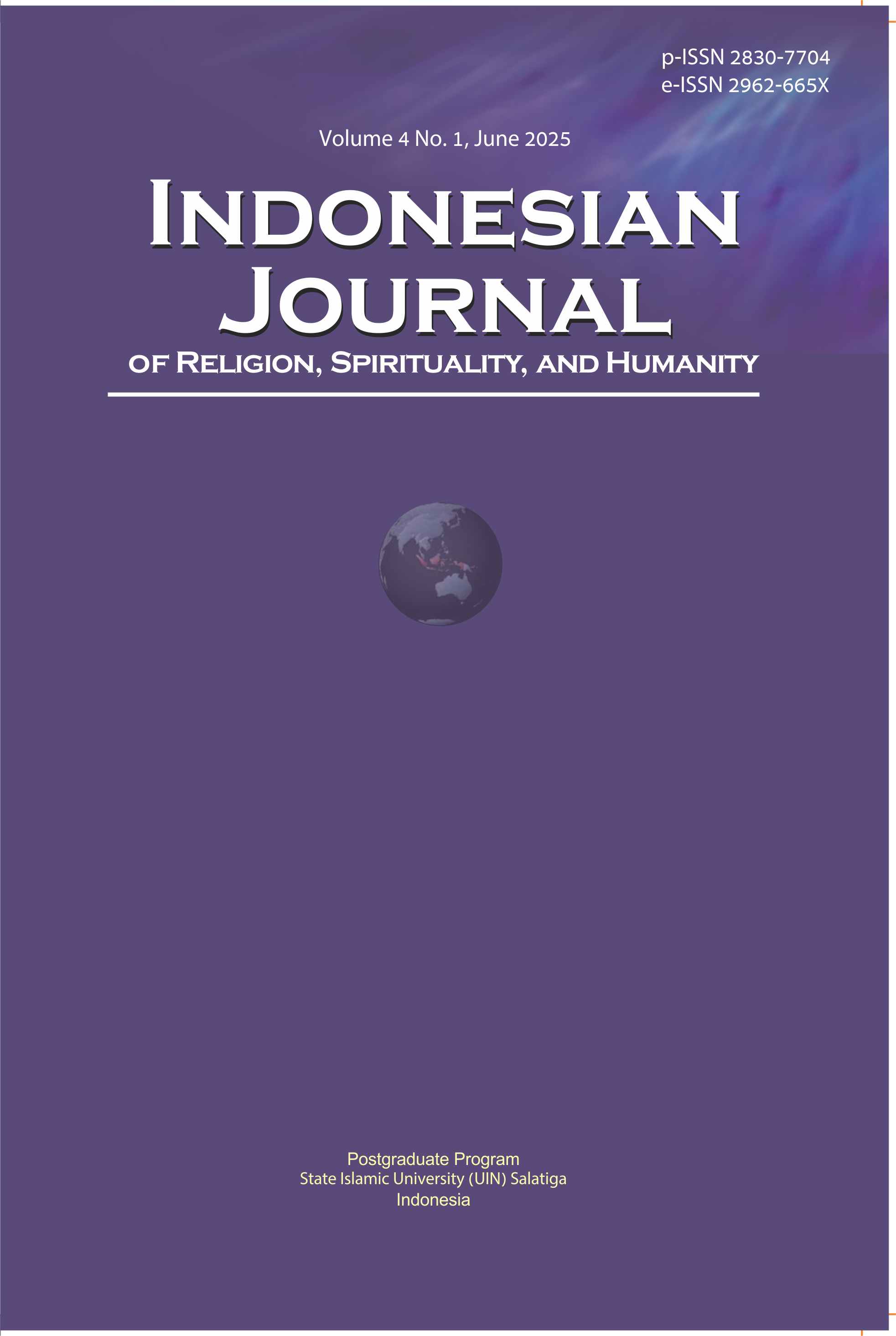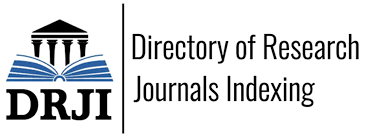Prayers for sale: lived Islam and spiritual marketplace in contemporary Nigerian society
DOI:
https://doi.org/10.18326/ijoresh.v4i1.85-107Keywords:
Prayer, Itinerant Muslim cleric, Spiritual marketplace, Divine blessing, Spiritual lifestyleAbstract
Prayers play a significant role in the pursuit of a spiritual culture that fosters the social fabric of everyday life in a spiritual marketplace. Many people increasingly embrace Islam and Muslim clerics because they wield significant spiritual capital, often influenced by neoliberal ideology. Nevertheless, limited scholarly attention is devoted to these expressive cultural practices as it is lived. This study examines how itinerant Muslim clerics in Yoruba society creatively market and deliver prayers in public spaces and explores the socio-religious functions these practices fulfil in contemporary urban contexts. The research explores the material and embodied power inherent in Islamic symbolism by focusing on clerics who publicly offer prayers and blessings as a means to soothe and respond to the complexities of human existence. Utilising performance theory as its analytical framework, and drawing on ethnographic fieldwork conducted in southwest Nigeria, the study explores how the commodification of prayers is mobilised to shape urban life. It further investigates the ritualised pursuit of baraka (divine blessing) among religious consumers aiming to attain personal goals, most notably success, hope, survival, and livelihood. These salient yet creative practices illustrate how the Yoruba people construct and ‘live’ to create a reflective spiritual lifestyle that embeds Islamic sensibilities and meanings within the broader socio-cultural landscape of everyday urban life.
References
Abbas, L. O. (2003). Imamship in Islam: Its concepts and practice among the Yoruba of Oyo and Osun States in Nigeria (Unpublished doctoral dissertation). University of Ibadan, Ibadan.
Al-Ghazālī, A. H. (2013). On intention, sincerity, and truthfulness: Kitāb al-niyya wa’l-ikhlāṣ wa’l-ṣidq (Book XXXVII of the Revival of the Religious Sciences) (A. F. Shaker, Trans.). The Islamic Texts Society.
Adebayo, K. O., Falase, O. S., & Akintunde, A. (2017). 'Here, we are all equal!': Soccer viewing centres and the transformation of age social relations among fans in South-Western Nigeria. Soccer & Society. https://doi.org/10.1080/14660970.2017.1323739
Adogame, A. (2010). How God became a Nigerian: Religious impulse and the unfolding of a nation. Journal of Contemporary African Studies, 24(4), 479–498. https://doi.org/10.1080/02589001.2010.512742
Ajala, A. S. (2008). Identity and space in Ibadan politics, Western Nigeria. African Identities, 6(2), 149–168. https://doi.org/10.1080/14725840801933965
Amin, M., & Ritonga, A. D. (2024). Diversity, local wisdom, and unique characteristics of millennials as capital for innovative learning models: Evidence from North Sumatra, Indonesia. Societies, 14(12), 260. https://doi.org/10.3390/soc14120260
Barber, K. (2000). The generation of plays: Yoruba popular life in theatre. Indiana University Press.
Garuba, H. (2003). Explorations in animist materialism: Notes on reading/writing African literature, culture, and society. Public Culture, 15, 261–285.
Gbadamosi, T. G. O. (1978). The growth of Islam among Yoruba. Longman.
Green, N. (2011). Bombay Islam: The religious economy of the West Indian Ocean, 1840–1915. Cambridge University Press.
Iroanya, A. C. (2024). Poverty reduction in Nigeria: A religious imperative. African Journal of Politics and Administrative Studies (AJPAS), 17(1), 857-881. https://doi.org/10.4314/ajpas.v17i1.42
Janson, M. (2021). Cross religious boundaries: Islam, Christianity, and Yoruba religion in Lagos, Nigeria. Cambridge University Press.
Janson, M., & Akinleye, A. (2015). The spiritual highway: Religious world-making in megacity Lagos (Nigeria). Material Religion, 11(4), 550–562. https://doi.org/10.1080/17432200.2015.1103484
Kotler, P., & Armstrong, G. (1996). Principles of marketing (7th ed.). Prentice Hall.
Lawuyi, O. B. (2015). Nigeria as a market metaphor: The scenario of visibility, representation, and power in the public space. Ibadan University Press.
Mabogunje, A. L. (1976). Urbanization and urban expansion in Nigeria. Africana Publisher.
Mudasiru, M. (2014). Space, population and waste management in Ibadan. Journal of Pan African Studies, 7(4), 175–194.
Mudasiru, M. (2022). Jalabi practice of Muslim clerics and the hermeneutics of prayer commodification in Ibadan, Nigeria (Unpublished doctoral dissertation). University of Ibadan, Ibadan.
Mustapha, A.-R. (2020). Muslim–Christian encounter in Northern Nigeria. In A.-R. Mustapha & M. Ehrhardt (Eds.), Muslim-Christian encounters in Africa. Cambridge University Press.
Myers, G. (2011). African cities: Alternative visions of urban theory and practice. Zed Books.
Obadare, E. B. (2017). Religious NGO, civil society, and the quest for a public sphere in Nigeria. African Identities, 5, 135–153. https://doi.org/10.1080/14725840701253928
Ololajulo, B. O. (2022). ‘We are all Àmọ̀tẹ́kùn’: Insecurity, ethno-regional hegemony, and resistance in Southwest Nigeria. Yoruba Studies Review, 6(2), 1–22. https://doi.org/10.32473/ysr.v6i2.130287
Omobowale, E. (2019). Class, gender, sexuality, and leadership in Bodija Market, Ibadan, Nigeria. Journal of Anthropological Research, 75(2).
Omobowale, E., & Omobowale, A. (2019). Oju and Inu: Solidarity in the informal market space in Ibadan, Nigeria. Journal of Black Studies, 50(4). https://doi.org/10.1177/0021934719840721
Opara, U. C., Iheanacho, P. N., & Petrucka, P. (2024). Cultural and religious structures influencing the use of maternal health services in Nigeria: a focused ethnographic research. Reproductive Health, 21(1), 188. https://doi.org/10.1186/s12978-024-01933-8
Peel, J. D. Y. (2016). Christianity, Islam, and Orisa religion: Three traditions in comparison and interaction. University of California Press.
Reinhart, K. (2020). Lived Islam: Colloquial religion in a cosmopolitan tradition. Cambridge University Press.
Roof, W. C. (2001). Spiritual marketplace: Baby boomers and the making of American religion. Princeton University Press.
Uyuni, B., & Adnan, M. (2024). Philosophical Foundations in Training Traditional Religious Educators: Bridging Past and Present. Futurity Philosophy, 3(2), 40-65. https://doi.org/10.57125/FP.2024.06.30.03
Yusuph, D.G & Oniya, O.I. (2023). An Appraisal of the Practice of Sufism and Jalabi among Yoruba Muslims in Nigeria. International Journal of Emerging Issues in Islamic Studies, 3 (2). 36-46. https://doi.org/10.31098/ijeiis.v3i2.1914
Downloads
Published
How to Cite
Issue
Section
License
Copyright (c) 2025 Moruff Mudasiru

This work is licensed under a Creative Commons Attribution-ShareAlike 4.0 International License.
Copyright
Authors who publish with Indonesian Journal of Religion, Spirituality, and Humanity agree to the following terms:
- Authors retain copyright and grant the journal right of first publication with the work simultaneously licensed under a Creative Commons Attribution License (CC BY-SA 4.0)that allows others to share the work with an acknowledgement of the work's authorship and initial publication in this journal.
- Authors have the right to enter into separate, additional contractual arrangements for the non-exclusive distribution of the journal's published version of the work (e.g., post it to an institutional repository or publish it in a book), with an acknowledgment of its initial publication in this journal.
- Authors are permitted and encouraged to post their work online (e.g., in institutional repositories or on their website) prior to and during the submission process, as it can lead to productive exchanges, as well as earlier and greater citation of published work.
Licensing
This work is licensed under a Creative Commons Attribution-ShareAlike 4.0 International License.









